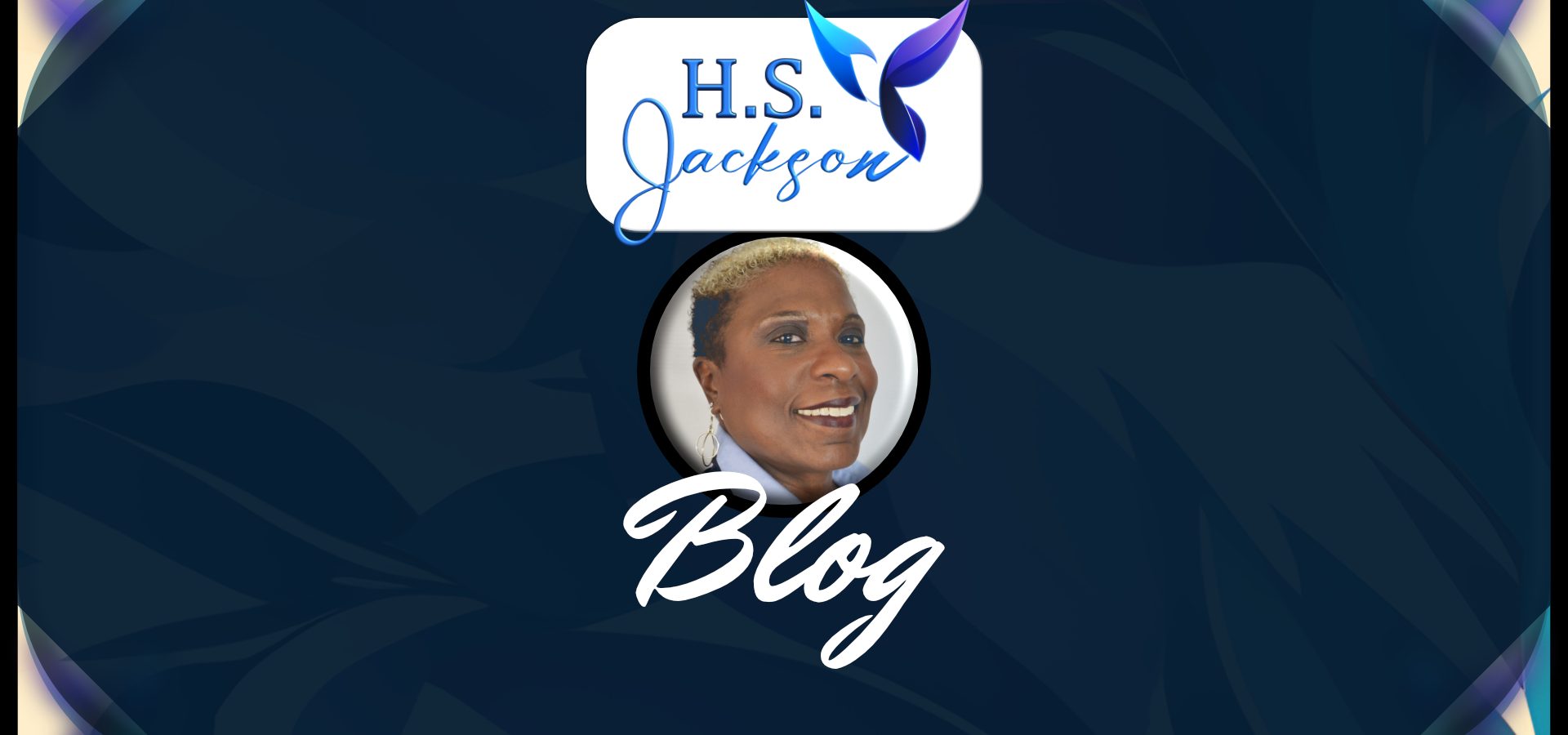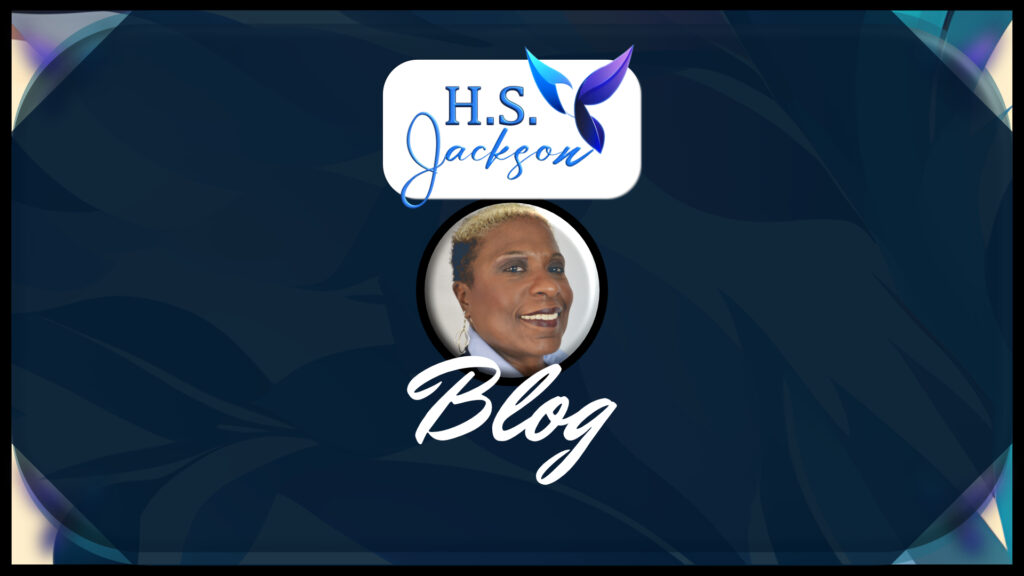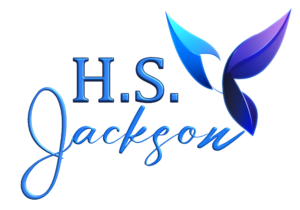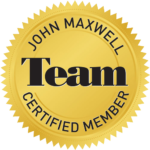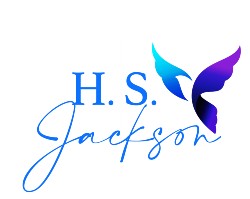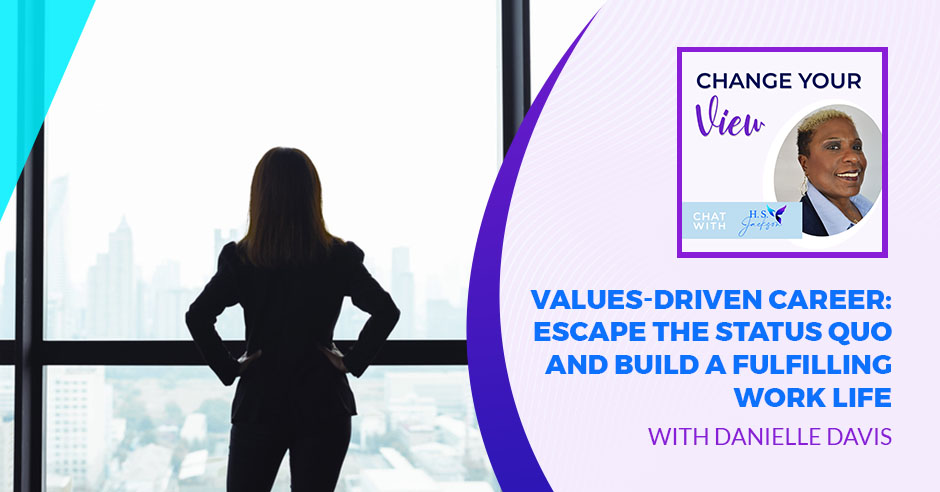
Do you feel trapped in a job that doesn’t align with your values? Liberated Development helps you find fulfillment and freedom by designing a career path that matches your purpose. The visionary founder of Liberated Development, Danielle Davis, shares her journey as she left a corporate job to pursue her passion for personal development. The journey towards a values-driven career wasn’t easy, and there was self-doubt and the challenge of separating herself from her business. But she persevered with her desire for freedom and authenticity. There’s more than one path to success, and today’s episode will inspire you to find yours. Get started today and build a life you love with Danielle Davis!
—
Watch the episode here
Listen to the podcast here
Values-Driven Career: Escape The Status Quo And Build A Fulfilling Work Life
Danielle, I’m so excited to have you with me.
Thank you for having me, Haseena. I’m excited to be here.
We met a while ago. We hit it off right away because there was that connection that we felt because we had kindred spirits of taking that leap to become entrepreneurs.
Yes. I was grateful for this space. I think we were in some small groups together and were able to have a lot of more intimate conversations. I definitely felt the energy right away. I’m glad we were able to connect.
Your story is so powerful because you worked a 9:00 to 5:00. A lot of times, people feel trapped that they have to stay where they are at a 9:00 to 5:00 instead of believing that they can take that leap to move forward and in the direction that they feel driven to go. I’m not saying to leave your job, but I want you to talk about that because I think that was what’s so compelling. You said, “I decided that it was time for me to go.” You didn’t even have a parachute, if I’m not mistaken. Tell me about that moment because when you told me that, you didn’t have a parachute, you just decided that this was not in alignment with my values and my beliefs and you could not stay there any longer. Please expand on that.
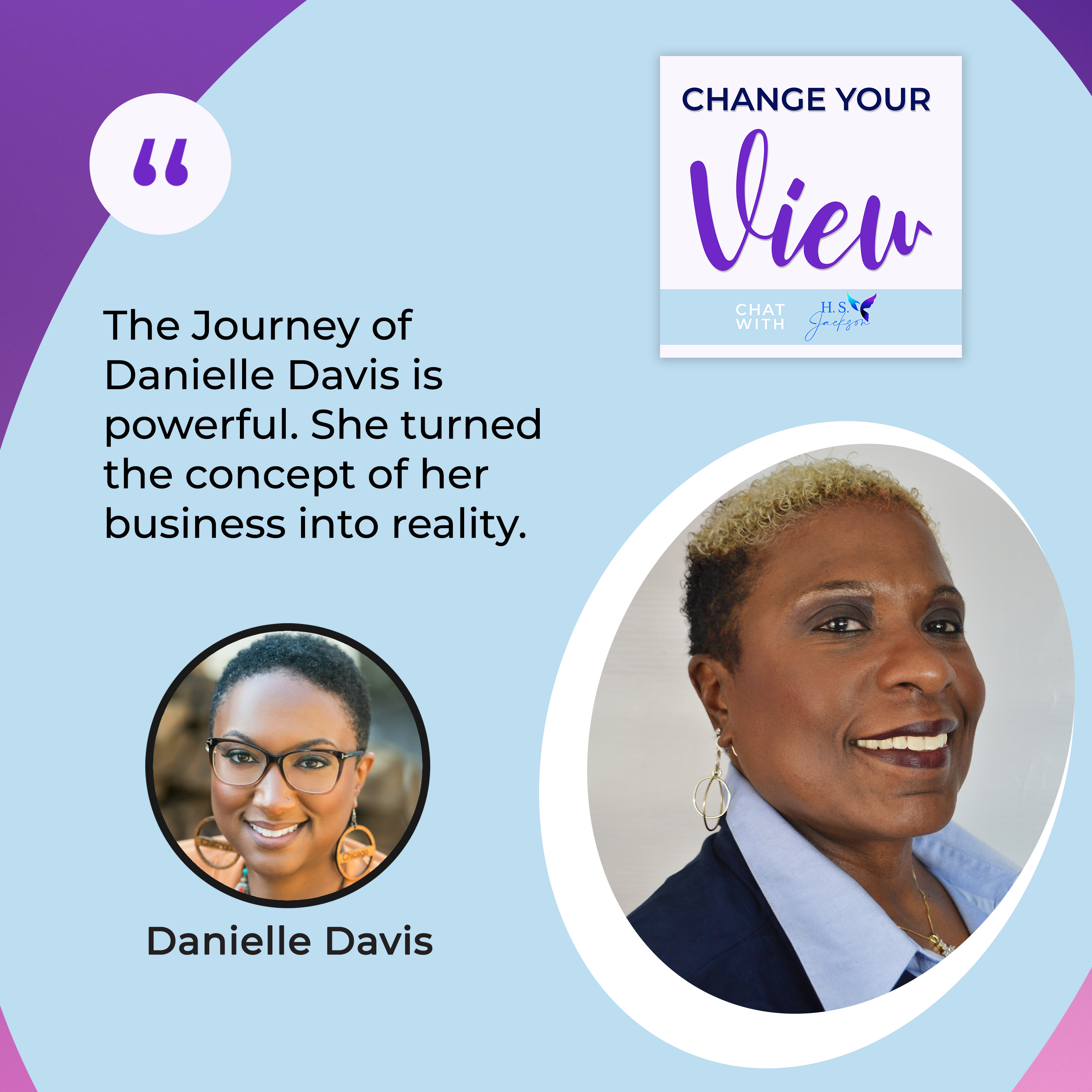
That’s funny that you said that way. I didn’t have a parachute. I had a little something in place, but I didn’t have a whole lot. I’ve had two stints into consulting, having my own business. I’m a few years into the company that I have now. I run a company called Liberated Development that I started in 2019. Prior to this company, I think this is probably the time that I talked about when we met about the not having the parachute is I left a position some years prior.
I did not have a job in place. That particular position and the environment that I was in was very toxic to me. There was definitely a value used misalignment piece, which is what you mentioned. There were a couple of moments, but there was one moment in particular, which was the straw that broke the camel’s back. I was the camel. This moment was the straw. I was at an inflection point, or a decision point, of being able to, or I had the ability to stay at this job.
At that time, I did feel trapped. This is the avenue or the channel through which my bills are being paid. Life is real. I had a mortgage at the time. The level of fulfillment I was getting from the job and some of the toxicity around things that I was being asked to do didn’t align with who I wanted to be as a human, as a person in this world. At that point, I had to make a choice of do I stay here for the paycheck?
The paycheck is real. Sometimes we have to make decisions based on that. Thankfully, I was in a position where I could give it some thought. I had some contacts in place where I was like, ‘I can pull this together and do something on the side.” I absolutely left without a new 9:00 to 5:00 or a new regular job, if you will. Yes, I’m taking the long way there to say it was around the values. I wasn’t living in my values. I don’t feel like I was living to my full potential in that role. I also don’t feel like it was aligned to my purpose.
What I was experiencing was also affecting my wellness, my health, how I was feeling about myself, the level of stress that I was carrying around because I was unhappy there and I needed to do something about it. The doing something about it was to leave there, for other people that doing something about it may be something different depending on their life situation. It was absolutely affecting my wellness in a way that I couldn’t afford.
What’s so powerful is that you took that chance not knowing. I’m sure you had a vision because, like you said, you have started a business that’s called Liberated Development. I love the title.
I started in 2019.
I’d like to know how you came up with that name because I know there’s something to that. You took that chance in leaving a place, changing your view, which I think is what this show is all about. How you change your view and not allowing your circumstances to control you. Instead, you control your circumstances. I know that you’ve encountered some challenges and obstacles along the way. I’m sure you look back, because we always do and we say, “Did I leave that job to sit here and now look at this mess I’ve made of my life?” Did you have that moment?
I never had the look at the mess moment, but I have definitely had the moments of, “Did I really just leave this benefits paying 401 contributing?” Absolutely, I’ve had those moments. The whole retirement fund, that comes from me. Let me back up and say, so there are two things that are present here. I left two different roles. The first role that I left that I talked about was that I consulted for a few years, and then I actually went back to the traditional 9:00 to 5:00 setting. I was there for a number of years. In 2019, I left again. That is when I started the company. This time around is my second time leaving and starting a business. The first time that I left the role and started consulting, at that point, I hadn’t started a company yet.
I was consulting on the side here and there. I did that for a few years. After getting exhausted with that, because I wasn’t ready to start a company, I went back to a regular 9:00 to 5:00. When I left the 9:00 to 5:00 the second time is when I started Liberated Development. I’ll get to the name for you and how I came up with that name. I’ll try to give you the short version of it, which is I am Miss Personal Development. I’ve always been like this. I’ve always been in pursuit of and in spaces where I was seeking development of myself in some way, whether it was my spiritual or professional self or emotional self.
This was the case in my work environments. When I was working, I was always pursuing what is the next opportunity, the way to develop myself. As I began to experience more spaces where I was developing, I also felt restricted. I didn’t experience a lot of places where I was encouraged to develop freely in whatever authentic, genuine way came from me. It was within somebody else’s framework like, “You go to this program and you develop this way because here is my framework. You go to the other program, you develop within this framework.”
You had to fit within their system.
Absolutely. Liberated for me.
You couldn’t be Danielle. You had to be constrained.
I could be Danielle within these seven bullet points.
Be constrained within this box.
What my company does is do talent development within the organization. I’m doing leadership development and team development but that name for me and the way that I operate the company is based on what has worked for me in my life of creating spaces where folks are in tune with what they value, how they want to align their values with how they live their lives and then operating from that place. The starting point isn’t somebody else’s framework, idea of success, or idea of what a regular job should look like and what a 9:00 to 5:00 should look like.
The starting point is me, my values, what I want to get out of this experience or this team, if I’m working with a team. Starting with that and then developing based on that versus developing based on whatever this predetermined prescription has been given to us. That’s how I came up with the name. It’s basically basing it on the kind of development that worked for me and then what I then want to be able to translate to folks that I’m working with from a client perspective.
That’s amazing because in the day and age that we live in and I think about when COVID-19 hit, the world totally stood still and stopped. We were stuck at home. It was a shock. When people said, “You have to telework now,” you were like, “What’s that?” That was like being a kid with candy and going to a store and you’re like, “For real? I could have anything I wanted here?” Telework was like being rewarded.
Now we have it where it’s more acceptable, but it goes to being liberated. When I say liberated, you still have the guidelines you have to follow but are not constrained on how you get it done. That’s what I think people need to understand. You need to be able to have some autonomy because we’re all unique and we’re separate. When we stop honoring that and try to control, we put a ceiling on the productivity and how high we can go in life. You’re breaking through that with Liberated Development, helping employees, employers, businesses and teams understand. Let’s take those limits off and look at your uniqueness instead, correct?
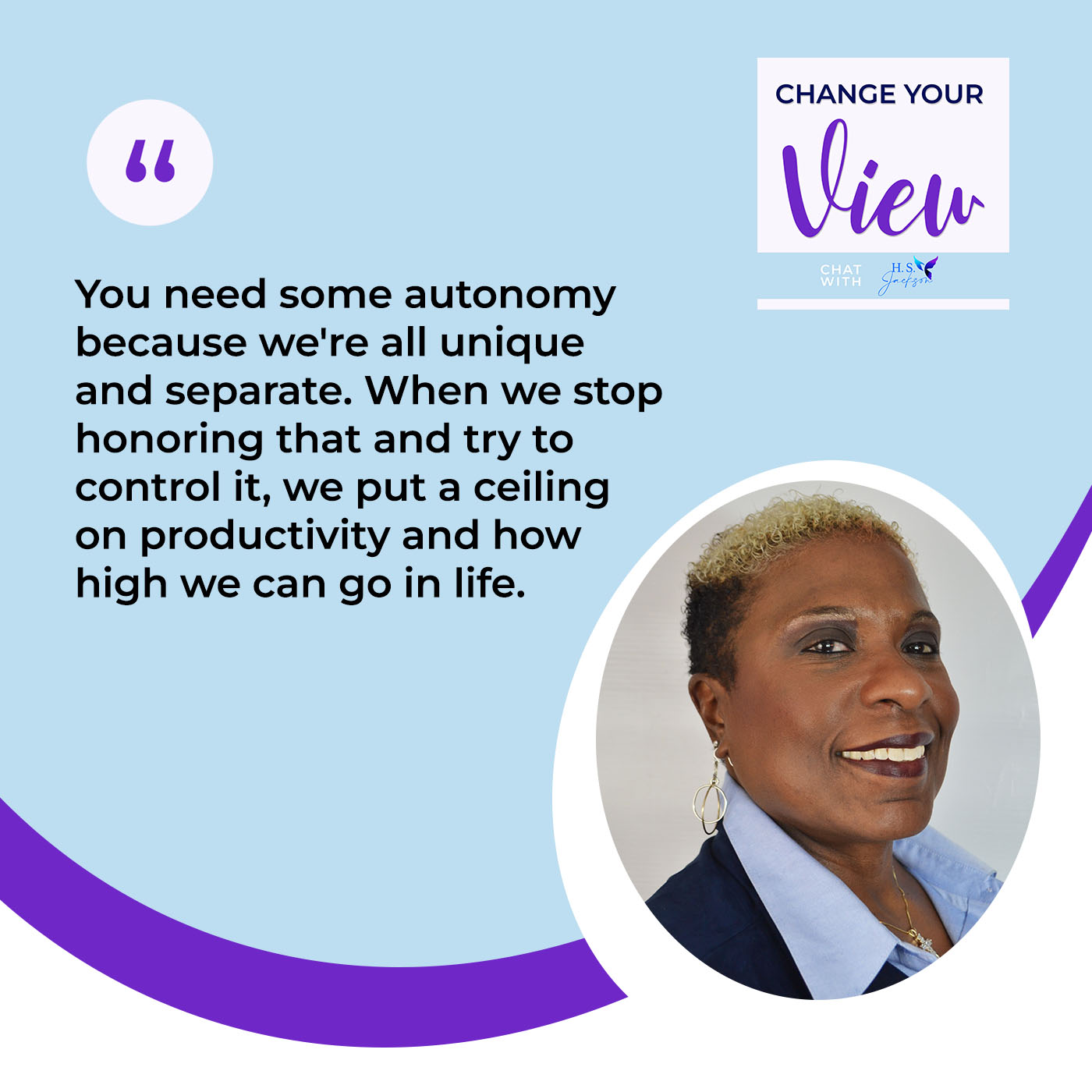
Absolutely. What I also hear in what you said and what is very much so true and how I tried to operate and see things and even how I think about the knowing when I wanted to and needed to move on when I think about elements of the business, it is for me about options. That’s what I’m hearing, even in what you’re saying. The options are opened up. If we use the pandemic as the example here of a lot of people hadn’t experienced working from anywhere other than their office, to use that example, so there weren’t a lot of options of how to get work done. It was you going to this office, you sitting at this desk, this is the option, this is how you get the work done.
We were forced to see more options and pathways. To your point, people now are able to operate in their uniqueness in ways and get the job done in different ways. I think, even to take it back to your question and the conversation about when I left and started the company, it was me seeing multiple options. It took some time for me to see that there is another way for me to experience life, make a living and pay this mortgage that I need to pay. The things that led to what a consistent, responsible life that contributes to society looks like. I grew up, as many of us did, in a way for a long time. The only pathway to that was to go get a job somewhere.
You go get someone else’s job. I don’t say that to say that there is anything wrong with getting someone else’s job. I wouldn’t be where I am right now if I didn’t have the jobs that I have. What was different for me, or I think what opened up for me was seeing and some of it was being exposed to other things. I was exposed to a lot of people, particularly when I started the company. A lot of friends that I had at the time happened to be people who had started their own businesses. I began to see that as an option for myself in a way that my view prior to that was a bit more limited. I had only seen a few other examples where now my world had opened up because I had friends who had done this thing, or someone else I knew someone who had done this thing.
I think for me, my view and my aperture widened a little bit in what I was able to see, and that helped me land there as well. It and it is also to take it to the greater development and try to do with my clients, to your point of what are the options and the different ways to, for us to get to this impact point. All of the companies I’m working with, just like all of us as individuals, are trying to make a difference in whatever way we’re trying to make a difference.
Whether you’re selling a product or whether you’re home with your family, whatever it is, you’re trying to make impact somewhere. How do we see multiple options to get there and not limit ourselves to the one way we may be used to seeing it? That way may work, and that way may be great for some people, but it may not fit me for a lot of different reasons. It may not fit the way my life looks. It may not fit me because of my identity background. It may not fit me because of how my brain processes things. How do I make room for the varied ways and options for me to get to whatever that impact point is or whatever it is that I’m trying to get to? Does that make sense?
Yes. I want to go back to something that you said, because I think I want to expand on it. You said, “When I left that one job and I didn’t have a parachute, I dabbed a little bit with consulting. I went back to work. A 9:00 to 5:00.” What was the mechanism that caused you to go back to the 9:00 to 5:00? What caused you to go back?
What caused me to go back, which is going to be ironic since you talked about my company, was that I didn’t want to start a company. When I left the first time, I was consulting. I was consulting as myself, as Danielle Davis. I had been doing that for a number of years. I got to the point where it was like, “If you’re going to do this, you need to make a business out of this. You don’t want to be doing stuff here or there, giving your social security number out when you doing your W-9s for the company.” I wanted to legitimize. I was at the point where I was doing it long enough, and I needed to legitimize the work that I was doing.
I’m going to date myself a little bit. This timeframe predates when you had to have a website to have a business but it was during a time when having the website would be nice. If you had a business without a website, people would ask questions or it might not be seen as legitimate. This was during a time where I didn’t have to have the website, but I also knew that to market myself as a business to go to the next level and all of those things, I needed to be a business. What made me go back to the traditional 9:00 to 5:00 at the time is I didn’t want to do that.
If you had a business without a website, people would ask questions, or it might not look legitimate. Share on XSome of it had to do with my own predisposition of how I am. I don’t like to self-promote. I don’t like to market. I don’t like to be in the spotlight. My personality is such that I always thought that I would not make a good entrepreneur or business owner because I’m not the person that likes to go work the room and network and ask the people for the business. Now I can go to a room and work it, but I don’t like to do it. When I thought of, “Do I want to make this long-term and start a company,” my internal answer, and that internal answer, I will say, a lot of it was based in fear. At the time, my fear of pushing myself in that way outweighed my confidence or bravery at the time. I had gotten to a place where it’s like, “If you’re going to keep doing this, you need to start a company.”
My internal voice did all the things that sometimes these internal voices did and told me all of the reasons why I shouldn’t and or couldn’t. At the time, the safe path was to go back to a traditional job, and that’s what I did. In that traditional job, after some years and some time, the other voice, there are often these two voices in our head, that other voice was still nagging at me and pulling at me. There have been some years and lessons learned, which I know you also spoke to. The lessons I learned in those years were then put in the bucket when I decided to start a company in 2019. I had a little bit more confidence, bravery and years and experience behind me.
I had a little more muscle to know how to shut those negative voices off a little bit more. Also, how to be strategic when, yes, you do need to network, but it doesn’t have to look the traditional way of networking. That has to do with the options and the view. At that earlier stage, I saw networking or promoting a business as only looking one way. There are a lot of ways to do that. As my exposure and aperture widened, I began to see that there are a lot of options to do this thing versus the one way that I always thought, “To run a business, you got to be this person and this thing,” but it’s bigger than that.
You need to network, but it doesn't have to look like the traditional way of networking. Share on XJust so I understand, you went back to the job, but then you did some more thinking and reflecting on it and said, “I can do this.” Is that what you said?
Yes. I did some more thinking and reflecting. I was still consulting every now and then while I was still doing that 9:00 to 5:00. When I went back, I was still consulting a little bit. Yes, I did think about it some more and say, “I can do this,” and I began to meet more people who also were running their own businesses. I was also exposed to it in a different way that also built my confidence.
It sounds like what you said there, too, is that if you are questioning or in doubt about the path that you should go, things will be placed in your path that will help you see the way to go. That’s what happened to you, listening to what you’re telling me. You went back, but then you were surrounded by entrepreneurs who gave you the confidence to say, “I can do this,” and then you went back out. A lot of times it takes that support and those mechanisms that put it in alignment.
I’m a person of space. I say that it seems God was bringing people into your direction, too, to help you see, “Danielle, I didn’t tell you to come back here.” I know you said that that’s not for you. He placed these people into your path, and that helped you go in the direction that you needed to go. Now you’re in your company now. Fast forward. What did you see? What was the vision that you had? A lot of times, you only see what you saw back then. “I’m stepping out, going into my business.” What was the vision that you saw for Liberated Development?
Honestly, the vision that I saw was freedom. You used a word earlier about people feeling trapped in roles or trapped in jobs.
Confined.
Liberated Development
When I started Liberated Development, there was of course the vision and mission and what I saw for the clients that I serve and the people and the work that I’m doing and the impact that I wanted to make in the world. I definitely saw that as far as it relates to the day-to-day of what the business does, but another driver, and I would say probably the top driver, was that I saw a more free life for myself. I was working in a very unhealthy way. The job that I was in prior to this, I was working a lot. It was a demanding role, and I enjoyed the work that I was doing, but I was working again at a pace that was unhealthy for me.
There were a lot of restriction that I felt in that role. I’m going to make it simple. I didn’t feel free. I didn’t feel like a free human being. I felt like I was under the hand in the direction of someone else. Of course, when we’re working for somebody’s company, at a certain point, you are under somebody else’s in some ways. We can’t all go to work and do whatever we want to do all the time. I was confined in there. This goes into values. I’m also a person of faith, and I’m very intentional about living up to my values. Something that I valued was freedom. When I say my own freedom, how I experienced and live my life and I didn’t have that in a way that was meaningful for me in the previous role or roles that I was in.
For me, that value of contributing to the world in the way that I wanted to contribute to the world, feeling like I was able to live out my purpose in a way that felt meaningful for me, something that I didn’t feel like I was doing in that previous role. I wanted to be free to do those things. When I say freedom, I don’t mean to wake up at noon and do what I want to do. I mean it from a space where I feel very in tune with my values and my purpose. Being in an environment that felt like it was keeping me from doing that meant that I wasn’t living as my fullest free self. When I decided to leave and start the company, I saw a world where I could be free to do that, to impact this world in the way that felt meaningful for me and that I was purposed to. Does that answer the question?
It does. The whole thing is that one, you’ve highlighted that your biggest value is freedom. The other thing is that you wanted to use that value of freedom to help other companies and other individuals as well break free. You’re helping the companies with their employees see the power of allowing their personnel to be free, to be autonomous and separate and then feeds into their bottom line. Until we understand that, we are not going to get the highest productivity out of the people who make our business work.
Develop Your People
I say often that the investment point for companies who want to invest in their growth starts with investing in the growth or development of their people because the people are the ones who are going to drive their growth, the company’s growth. Absolutely, I’m affirming what you’re saying. It starts with the human beings that are actually driving the company. Otherwise, it’s just numbers and metrics, and the numbers and metrics are important, but there are people who are actually going to help the organizations meet those numbers and metrics.
I know. That’s one of the things that I am so big about, which is why I started Ava’s Pathway, which is transforming women’s lives. To lead, become and belong one pathway at a time, but I want each woman to take control of their own pathway. I don’t want you to feel like you have to be constrained and fit into a peg where you are a circle instead of a square. That’s not to say that you need to become an entrepreneur. Find a place where they value you. I’m sure the companies that you work for, they understand that and they get it. That’s why they bring you on as a consultant for their businesses, because they know that the people matter. If you give them what they want, then they will give you what you need.
To go back to something that you said earlier, too, give them room to be their best selves, to be able to show up in an authentic way. If I’m working on a team and I am able to actually bring my creativity, I’m actually being able to bring that to that team, I’m going to contribute to that team in a different way. I’m going to bring some new ideas because I have a little bit more room to be myself in a way that is positively contributing to that environment.
Versus if I’m on the team but you’re not investing in me or I have to be a certain way, I’m not going to bring those new fresh ideas because I don’t feel like who I am, the fullness of who I am and the ideas that I bring are welcome here. Those generative ideas, those fresh, innovative ways to approach whatever problem that the company is trying to solve, they’re not going to get that from the people if the people don’t feel like they can bring that part of themselves to the space.
What do you think are the light bulb moments that make a company finally understand this, wake up, and see that people matter? Let’s go back to investing in them and what they want first. What do you think is the light bulb moment for the clients that you have that come to your way?
I’d say a couple of things, but when companies see it or get it, it has to do with when they are looking for new, fresh ideas, because whatever pattern they’ve been in hasn’t worked. I’ve seen that light bulb sometimes come because they’re in a pattern. It could be a holding pattern, a pattern of the same thing, or some stagnation happening. Something where maybe something that we are doing or a cycle that we’re in is not working and whatever turns the path the other way comes from somewhere unexpected. Sometimes that is a light bulb for them to see. The freshness comes from somewhere other than the same old or the way that we have thought about this before.
They have to finally wake up and decide that they’ve been going round and round in circles with the same returns. If they are willing to go down a different path, we keep saying path, they might get a different return
Yeah, to succinctly say it in that way. I will probably date myself again by saying this, but I’m also going to say that I think that while there is a lot of sticky conversation going on around the multi-generational piece of the workforce right now, we have five generations of folks working together. We got these young folks coming in and we got folks who are my parents’ age still there. I say that to say I think there is also something that is light bulb-ish with this newer generation of folks that are coming into the work for.
I think there is a fresh perspective or a different perspective of what folks are looking for from their workplaces. I think that being merged with what people have traditionally sought in workplaces, something about that mix being there, that freshness, that new idea being there, I see sometimes resulting in a, “I don’t know if I’m totally with this yet, but there may be something here.” I say that something has to something to do with the freshness that is a new perspective of what young folks are looking for from their work environments right now.
It is interesting that you raised that point. That’s something that actually I gave a seminar on that about the multi-gen. The whole thing is that we need to understand how we can embrace and learn from each other’s differences. Come up with new solutions and new options. First, you start with the options, then solutions. That helps us think outside the box instead of ridiculing each other because I know I can learn from someone half my age. I’m open-minded to that. When you get to have that closed mind, you hinder yourself, and you hinder what can actually occur.
I think about the fact that most importantly is that the values for our younger generation are totally different than the values of what me and you have now. To go to a job interview, I would not think to go to a job interview with a pair of jeans on and maybe a blouse but that’s just me. I probably would not wear a suit like I used to before. I don’t mean this in a negative way either. Our views are different.
I put on my other hat, I have to be open-minded to understand that things have changed. Maybe a pair of jeans and a nice shirt are acceptable, but I need to break outside the box. The point is that we need to understand that we can’t re remain rigid and inflexible and say that it has to be this way, because that’s the way it’s always been done. We have to change that tune instead say, “Let’s see how this can be done.” Look at it in a different perspective.
I love your point from the interview, what it made me think about, you talked about being a woman of faith. I am. I grew up in a church and I watched this change over the years of there was a time and the way that I grew up that I wouldn’t have ever thought of going into church with some pants on. Now, because of the way and now you go to church and there, some of that has to do with the nomination and things of that sort but it ties to values. It makes me think about even the value, again, to go back to the point of me even being able to name that a value for myself in my professional pursuit was freedom, to be able to say that.
I think that is even different generationally. I think about my mom’s generation. My mom is near 80 years old and during that, I’m painting with a broad brush generationally, but the value for the workplace then, my parents were looking for was security. They weren’t thinking about being free to create their own business. It’s like, “How do we get this job, stay in this job, build our retirement and all of the things?” I’m talking about a different generation. It was a different value.
That’s the thing because then, it was based on security, but now it’s based on values. The younger generation now is based on how are you aligning with what I want out of my world. We have to change that perspective as employers to not be about, “You should be worried about your security.” No. It’s actually what value am I bringing to help you become the person that you want to be because that’s what the focus is nowadays. Until we get that right and stop thinking about what we want it to be, we would be stuck. That’s why you’re brought in to help liberate those companies.
Understand that everybody is autonomous. Let’s see how we can come together. We can stay on this topic for a long time. Let’s move on to this one because it’s not roses, we know, getting it now and being on your own. How has the journey been for you in launching your business? As you said, you weren’t a person that was used to going out. You said you could do it. Let me preface that. You weren’t a person that loved to go out.
I still don’t love it.
How did you bridge that gap and what has been your obstacles to actually getting your business off the ground and running?
Get Yourself Out There
I’ll try to stay on topic here and stay in line. Obstacles, for me, one was getting over myself. Starting a business, starting a company, you know that you’re putting yourself out there. When you put your vision and mission out, you create a thing. It’s vulnerable, in a way. All of the previous jobs that I had before starting Liberated Development, if I’m going to speak on a panel, I’m going to present a thing, whatever I’m going to do, there’s a certain safety net in that I’m hiding behind someone else’s product, somebody else’s idea, somebody else’s vision. When I put myself out there, every time I say Liberated Development, it is me. I’m exposing me all of the time.
When you put your vision and mission out, you create a thing. Share on XI say that to say the first thing for me was getting over myself whether that’s ego or just being open and willing to know that this purpose and mission that I’m seeking to put out in the world is bigger than me. I had to get over myself. That was the first thing and the first obstacle. I say often that if I could do my job from behind or under a rock, I would do it from there. I don’t want to be in the forefront. I had to do a lot of getting over myself. I also had to ask for help. I can’t do all the things, be all the things to all of the people, asking for help from both things that I don’t understand. There are a lot of things about running a business day-to-day, including the operations, the finances, and the SOPs. There is a lot of things to running a business that I didn’t know or I didn’t know that I didn’t know.
I think being able to ask for help was a tough thing for me to do at first. I have gotten better at it. I still don’t know that I am winning on all fronts as it relates to that. However, I’m much better at that as than I was before. I would say another obstacle is separating myself from this company because in a lot of ways, I am the brand. I built the company.
I am Liberated Development. If I feel like a client doesn’t want to work with me or this thing didn’t go well or whatever the thing is, being able to not make that an indictment on who Danielle, the human is. It’s easy for those things to get mixed together because I have put so much of myself into the company to not take It personal. Being able to still sustain who I know that I am and not internalize those things in an unhealthy way, that still is tricky for me. I would say that’s been a challenge, for sure.
Now time has flown here. We could talk all day. I know that you have so much to share, but what is one thing you want to leave our readers with? I think your story is so powerful in that you have the 9:00 to 5:00 and went back, but then you understood that, “My value is freedom.” God did put things in your path to help you see that this is not where you’re supposed to be. You finally stepped out on that faith, believing that you could have your business because you already believed that you could be free. The concept of your business, that became a reality. What is one thing you want to leave people with to let them know that they can go their own path if they believe in it?
I think the one thing that I would leave people with, this starts with having a destination in mind, whatever that thing is you want to do, be, create, whatever way that you see that you can get there, think of three different other ways. I say that because if you have the end goal in mind and multiple pathways to get there, you are more likely to stay on course if that one thing or pathway doesn’t work. This one road doesn’t work.
If we only have our eyes set on the one road and the one road doesn’t work, we might give up on the thing. It’s like we’re going to a destination. You may be going somewhere. If one street is cut off, you still can take a detour and go to another street. You still can get to whatever that end destination is. I would say like once you have that end goal in mind or you know you want to create something different, actually taking the time to think about what are multiple ways to get to this thing, get to this point, get to this goal, so that you’re more encouraged to stay the course if that one way falls by the wayside.
I think that’s powerful because you can get stuck if you only see one way to get to that destination. It’s like when you are traveling on the road trip and there’s a big pile up on that interstate. We don’t sit on the interstate and wait until they clean it off and clear up the pile. We immediately go to the navigation system to reroute me.
That’s what we have to do in life. We have to reroute and reach the destination we ultimately want to arrive at. Understand, too, leave with this note. Let that destination not be your final destination. That’s just another leg of the journey because you have to keep elevating yourself going to higher levels in your life so that you don’t become stagnant and think that this is it.
We’re always going somewhere, always. We’re never done. As long as we on this Earth, we’re never done.
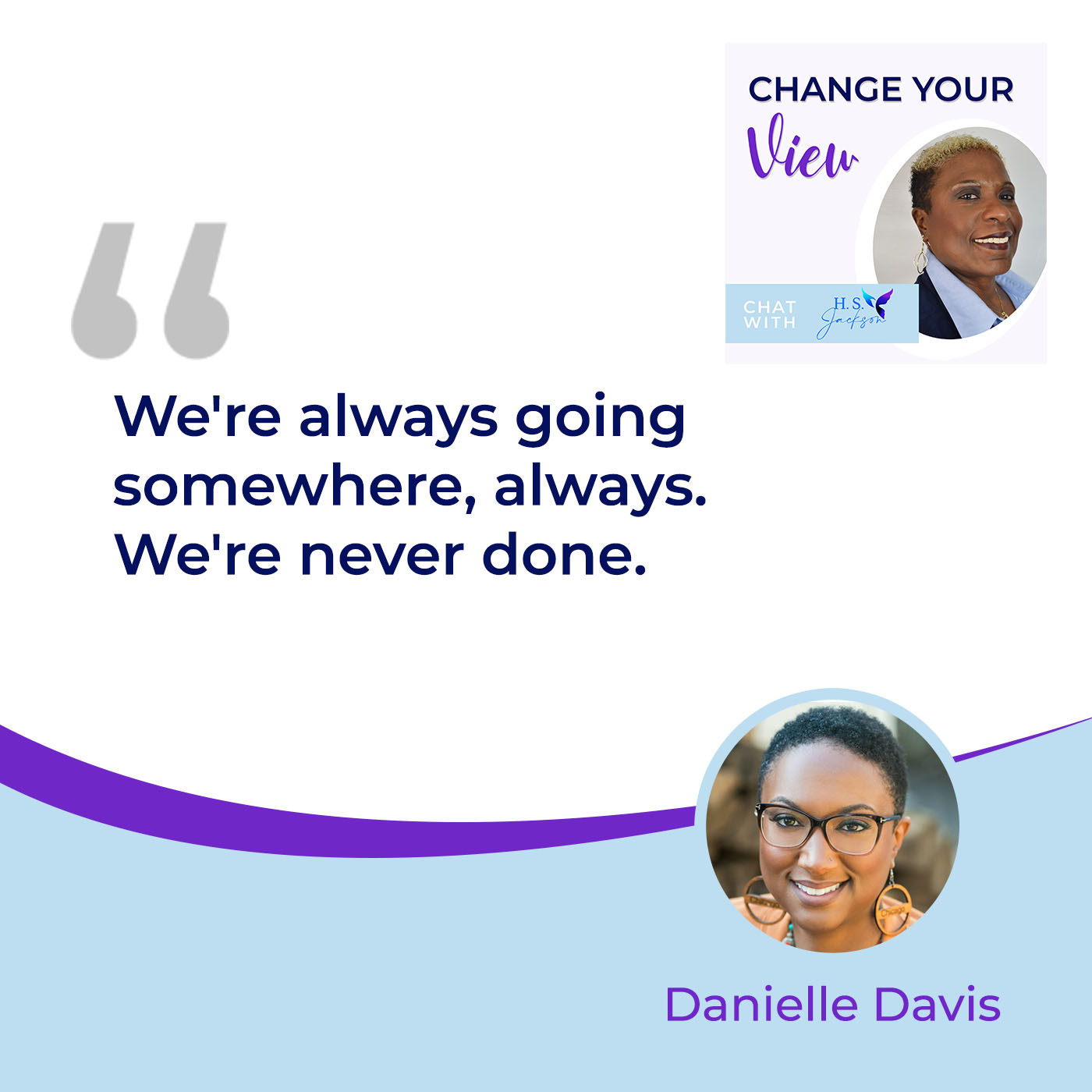
I think on that note, I’d like to end that because that is powerful. You are never done.
Thank you for having me, Haseena. I appreciate it. I appreciate you so much and appreciate the work that you are doing.
We’re doing work together and I know that there are going to be times where we will be able to collaborate our two businesses.
I’m you speaking it. I’m claiming it. I’m here for it. Yes, absolutely.
Danielle Davis with Liberated Development, I thank you so much for this conversation.
Thank you very much.
Important Links
About Danielle Davis
 Danielle is the visionary founder of Liberated Development, where she champions the growth of leaders and teams by challenging the norms of dominant culture and advocating for solutions that truly reflect each person’s unique journey and identity. Drawing from over 20 years in strategic planning and leadership development in the nonprofit sector, she navigates the intersections of identity, wellness, and race to inspire transformative change. Danielle is passionate about guiding leaders to stand firm in their values, dream big, and believe in the power of what’s yet to be seen. A proud Chicago native turned Washington, D.C. resident, her journey reflects a commitment to envisioning and embodying a more liberated and expansive future.
Danielle is the visionary founder of Liberated Development, where she champions the growth of leaders and teams by challenging the norms of dominant culture and advocating for solutions that truly reflect each person’s unique journey and identity. Drawing from over 20 years in strategic planning and leadership development in the nonprofit sector, she navigates the intersections of identity, wellness, and race to inspire transformative change. Danielle is passionate about guiding leaders to stand firm in their values, dream big, and believe in the power of what’s yet to be seen. A proud Chicago native turned Washington, D.C. resident, her journey reflects a commitment to envisioning and embodying a more liberated and expansive future.
